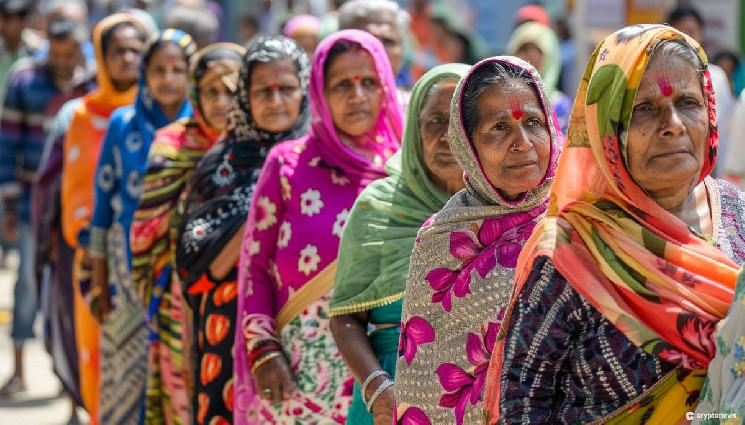A Taiwanese blockchain tech firm is teaming up with journalists to fact-check the upcoming election in India in a battle against digital deception.
Numbers Protocol says it employed the same approach during the 2020 US presidential election and the Jan. 2024 Taiwan presidential elections.
In the lead-up to the Indian general election starting April 19, a collaborative effort will see partnered news outlets and photojournalists capture content on location. This content will then be uploaded onto a blockchain platform using Numbers Protocol’s suite of tools, specifically Capture Cam and Capture Dashboard.
These tools aim to enhance the credibility of captured digital media by detecting potential manipulation attempts through artificial intelligence.
Beyond professional journalists, Numbers Protocol has invited civil society organizations to contribute by using the Capture application.
The platform automatically associates all user-generated content with provenance data. This embedded data empowers media organizations to verify the authenticity of such content efficiently.
Fact-Checking Gets a Tech Upgrade as AI Detects Election Shenanigans
Numbers Protocol co-founder Timmy Yang shed light on the company’s approach to detecting deepfakes and manipulated media. He told Cryptonews that all content submitted by news outlets and photojournalists undergo a blockchain registration process.
This allows users to upload the content to a verification engine powered by an AI model. The model then compares the uploaded content to a database of similar content. If the content originates from a trusted source, the engine will display an exact match.
Conversely, content from unverified sources will be compared against similar content from established sources. This will highlight potential discrepancies and provide users with a means to discern authentic information.
Upon registration, each piece of content receives a unique identifier, or Nid, generated using the ERC-7053 standard. This Nid directly corresponds to the content’s hash. Consequently, any alteration to the original content will result in a different hash and, therefore, a different Nid. Additionally, the verification engine’s AI model can independently verify if uploaded content matches the registered version.
He further said the verification engine will also be available for public use.
“We are actively working with civil society groups and our own community in India on this project,” he said. “We believe that citizen reporters are just as important as the established press and equally need to have their content protected and archived.”
Unbiased Selection for Election Media Verification
To ensure impartiality, Yang emphasized that the selection process for partnering journalists and media organizations is conducted in a strictly unbiased manner.
“Numbers Protocol is a decentralized network and the collaboration opportunity is open to all journalists and media outlets,” he said. “The value of Numbers Protocol is to present the full picture, showing the provenance (i.e. where the content was coming from, how it was generated) to everyone who wants to know the story behind the content.”
The provenance records created verify the integrity of digital content and can also be used by photojournalists as a mechanism to monetize and license their work.
Follow Us on Google News







Leave a Reply